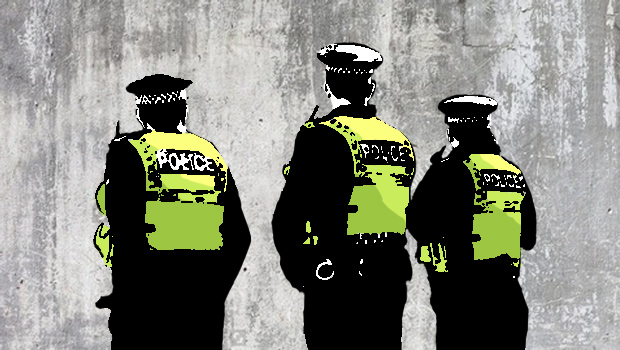
I recently contributed to another investigation led by the BBC Radio 5 Live team about police abuse of powers for sexual gain. Click here for details of their last investigation on this issue. Yesterday I was interviewed on the show to discuss the issue. Listen to my comments on the BBC 5Live programme (from 12 minutes onward) by clicking below.
The focus of the latest 5 Live investigation was the selection process of police officers and the ‘vetting’ methodology, an issue highlighted recently in the Ian Naude case, which you can read about here: Are the Police failing to stop sexual predators joining their ranks?
In particular, 5Live has established that thousands of serving police officers and civilian staff, taken on before 2006, have never undergone the stricter criminal record and background checks that were introduced that year. A Freedom of Information Request from the BBC established that, of the 36 police forces who replied, 16 had not performed retrospective background checks on their staff/ officers.
I welcome any media investigation that puts a spotlight on police officers abusing their position for sexual gain and helps bring perpetrators to account, but I suspect that the vetting process, no matter how rigorous and thorough, will not stop the majority of police ‘sexploitation’ cases. I say this because, in my experience, the majority of officers abusing their position are not dangerous paedophiles like Ian Naude, but rather, men who are tempted to take advantage of a situation for their own sexual benefit, and who probably have no visible history of this prior to joining the Police.
Here are some examples:
- My client Yvonne who was a long-term victim of domestic violence and was groomed by a police officer assigned to her case and then encouraged to enter into a sexual relationship with him; hear her talking about her story on the BBC 5Live programme above at approximately 35 minutes in, or read about it here.
- My client Josey, another domestic violence victim, received multiple texts of a sexual nature from the officer investigating her case, asking for intimate photographs (Read her story here).
- My client Lisa, yet another domestic violence victim, who also received multiple texts of a sexual nature from her investigating officer, asking for naked photographs of herself (Read her story here).
- My client Kate, a sex worker who reported her pimp to the police and who was then phoned and harassed by multiple, personal text messages from the investigating officer in her case, at all times of the day and night, when the officer was both on and off duty (see here)
- My client Andrea, who called the police for help with a friend’s teenage son who had run away from home, and was visited by a police officer who flirted with her, tried to kiss her and then called and texted her multiple times.
- My client Claire, yet another domestic violence victim who was groomed by the investigating police officer, and then encouraged to enter into a sexual relationship with him. (Read more here.)
- My client Brian, whose personal information on the Police National Computer was accessed and then misused by a jealous police officer who had been seeing Brian‘s previous boyfriend and who then made an anonymous call to Brian’s employer making false accusations about him.
- My client Collette, who was assigned a family liaison officer after her husband had tragically committed suicide; this married officer then bombarded Collette with personal visits, calls and texts (with a clearly sexual intention) and stalked her by obtaining data on her car from the Police’s Automatic Number Plate Recognition System (ANPR) including following her and using his emergency lights to pull her over on the motorway so he could take her for coffee.
The list goes on… And the fact is that I genuinely believe that the officers involved in all of these cases would have passed the police national vetting standard test, either on admission or subsequently. They are not dangerous paedophiles with a pre-existing history of criminality or suspicious behaviour, but rather sad men in a uniform who have abused their privileged position for their own sexual gain.
The IOPC, the HMIC, the National Police Chief’s Council and the College of Policing all recognise that the exploitation of victims of crime by officers overstepping professional boundaries and abusing their positions of authority, trust and access to those vulnerable victim’s often fragile and chaotic private lives is a long-standing problem, and one that only some police officers seem to recognise and respect.
In my opinion, although robust vetting standards are of course imperative, what is really required is a thorough and ongoing campaign throughout all Police forces to raise awareness of this problem (both so that officers who think that forming sexual relationships with victims of crime is okay are disabused of this notion, and so that all officers can be on the lookout for signs of such abuse amongst their colleagues) and above all uniformity in sanction to send the clearest and most robust of messages to those tempted to offend; imprisonment and immediate dismissal if misconduct in public office is proven.
Only then will we begin to see a change in what I suspect is a long-standing culture amongst certain types of Police Officers, one which is now coming ever more to light in an age when victims are more aware of their rights, police authorities are more willing to listen to them, and abusing officers often leave blatant evidence of their behaviour, like guilty fingerprints, all over electronic media.

You must be logged in to post a comment.